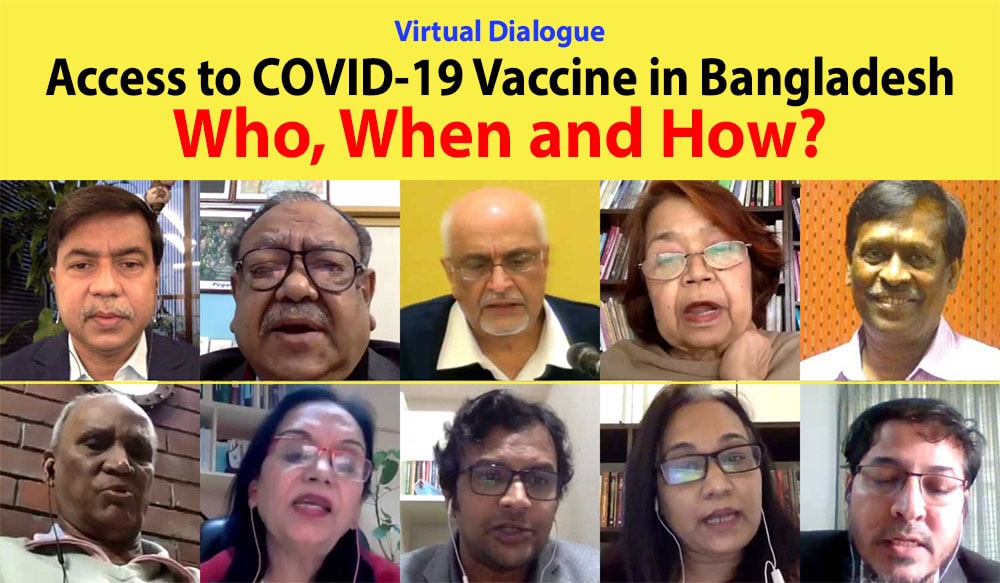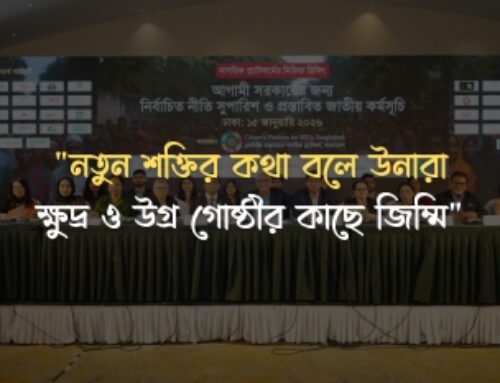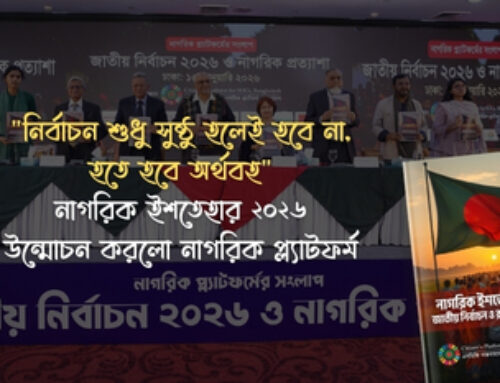
Bangladesh’s coronavirus experience is mixed compared to the experiences of its neighbouring countries. While Bangladesh is doing better than countries like India, Pakistan and Sri Lanka in terms of coronavirus cases, deaths and number of tests, it is faring worse than Thailand, Vietnam and Cambodia. Even with the arrival of the COVID-19 vaccines to combat the pandemic, there remain questions regarding whether the vaccines are a scientific triumph or a commercial success. These observations were presented in a virtual dialogue on “Access to COVID-19 Vaccine in Bangladesh: Who, When and How?” on 20 December 2020. The Dialogue was organised by the Citizen’s Platform for SDGs, Bangladesh in association with Bangladesh Health Watch (BHW). The event was organised under the Platform’s new initiative in partnership with the United Nations Development Programme (UNDP), ActionAid Bangladesh, Friedrich-Ebert-Stiftung (FES) Bangladesh, ICCO Cooperation, Plan International Bangladesh, WaterAid Bangladesh, and the Centre for policy Dialogue (CPD).
Dr Mushtaque Raza Chowdhury, Convener, BHW made the kick-off presentation. He mentioned that the coronavirus death cases were concentrated among males and old people above 60 years of age. While the cases and deaths were more prevalent in certain districts like Dhaka and Chittagong, some districts did not witness any incidence of COVID-19. He expressed concerns over whether the pricing of the vaccines would be set from the corporate perspective. He emphasised that the vaccines should be declared as global public good and that its production and distribution to be accessible to all countries, without priority nor exclusivity. Vaccine nationalism has become a world-wide concern. Rich countries have hoarded doses beyond their necessity. This might create wider economic inequalities between the developing and the developed world. Therefore, he underscored the need for allocation rules and pricing policies to be transparent and accountable. It is also important to consider whether Bangladesh is prepared for the vaccines. In that regard, preparing the community through participation and involvement is necessary. Major concerns still exist as regards the length of protection, preservation, applicability for all ages, gender and races, and availability of finance for the vaccines, among others.
Dr Bijon Kumar Sil, eminent vaccine specialist, was present as an expert panellist. He emphasised that it is important first to locate eligible candidates for receiving the vaccines. Eligibility can be ensured through laboratory tests that checks whether one has the antibodies to fight the virus. He emphasised on the need for monitoring the vaccines subsequently.
Dr Firdausi Qadri, Senior Scientist, Head Mucosal Immunology and Vaccinology Unit, Infectious Diseases Division, International Centre for Diarrhoeal Disease and Research (icddr,b), mentioned that Bangladesh must go forward with the vaccines despite their risks. Since every country has a different population with different genetics, the side effects of the vaccines cannot be understood without using them.
Mr Hamidul Islam, Cold Chain Specialist, UNICEF, Bangladesh emphasised that also Bangladesh needs a procurement and delivery plan in contingence with the supply and storage capacity.
Dr Mohammad Sorowar Hossain, Scientist & Executive Director, Biomedical Research Foundation (BRF), Dhaka, mentioned that there is no need to give it free to all citizens as there are many people who will be able to afford the vaccines. This will, in turn, reduce the pressure on the government.
Professor Dr Rumana Huque, Department of Economics, University of Dhaka underscored the need for regulating the private sector in case it brings the vaccines to Bangladesh. She also raised concerns about prioritising urban health during combatting the virus.
Dr Rounaq Jahan, Distinguished Fellow, Centre for Policy Dialogue (CPD) stressed that there is no point of planning without addressing that there is a lack of capacity for implementation.
Professor Dr Rashid-E-Mahbub, Chairman, National Committee on Health Rights Movement, Former President, Bangladesh, Medical Association (BMA) advised that the industries can contribute in easing the pressure off the government by bringing the vaccines to treat their employees.
Dr Md Tajudding Sikder, Chairman and Associate Professor, Department of Public Health & Informatics, Jahangirnagar University mentioned that from a public health perspective, a piloting must be done for the vaccines where different groups of people in Bangladesh will be put under a one-month trial.
Professor Dr Md Habibe Millat, MP, Member, Parliamentary Standing Committee on Ministry of Science and Technology, Government of Bangladesh; and Member, Parliamentary Standing Committee, Ministry of Foreign Affairs, Government of Bangladesh was present as a special guest in the dialogue. He mentioned that besides increasing the budget for the health sector, capacity building, transparency and accountability are vital.
Dr A F M Ruhal Haque, MP, Former Health Minister; Chairman, Parliamentary Standing Committee on Ministry of Science Technology, Government of Bangladesh; and Member, Parliamentary Standing Committee on Ministry of Health & Family Welfare, Government of Bangladesh was also a special guest. He emphasised that the existing post-vaccination system must be strengthened.
The session was chaired by Dr Debapriya Bhattacharya, Convenor, Citizen’s Platform for SDGs, Bangladesh and Distinguished Fellow, Centre for Policy Dialogue (CPD). He emphasised that a good policy of the government cannot be implemented due to institutional weaknesses, socioeconomic and political scenario. To ensure transparency, there must be administrative accountability from the government, democratic accountability from the democratic representatives, and social accountability from the citizens., he further added.
Professor Mustafizur Rahman, Distinguished Fellow, CPD was present. Partner organisations of the Citizen’s Platform from different parts of the country also attended the Dialogue.




